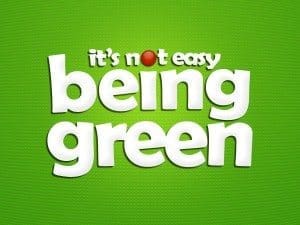Guest Post: 8 Tips on Being Green While Saving Money
One of the major objections people raise for NOT going green is that being environmentally conscious costs too much. That can be true, but it doesn’t have to be. Consider the following eight tips to be green AND frugal:
- Conduct an energy audit. Anything in your house that still has a burning “stand by” light is still drawing power. These so-called “vampire” gadgets are an enormous source of wasted, expensive electricity. Evaluate your major appliances and decide if you can afford newer, more energy efficient units.
- Change out all your light bulbs for either CFL bulbs or the emerging LED bulbs. These items are more expensive initially, but they use substantially less electricity and generate less heat, which helps defray cooling costs.
- Monitor your water habits. A hot, steaming shower is a real luxury that uses electricity and gallons of water. Consider installing a shower head that will let you turn the water off when you’re lathering up, and back on when you need to rinse. Investigate low-flush toilets, or devices that reduce the amount of water used during a single flush.
- Make your own cleaning products. Distilled water, white vinegar, and baking soda are just as effective as commercial products that contain toxic chemicals. Some of those items will even work well to clean you. Baking soda, for instance, is an excellent toothpaste, especially when mixed with a little crushed fresh mint.
- Eat at home and shop once a week. Impulse buys at the grocery store can destroy your budget and lead to last-minute meals out of boxes and cans. Sit down and make out a meal plan for the week and buy everything in a single trip.
- Concentrate on natural, fresh foods. Simply lowering your level of meat consumption in favor of fresh fruits and vegetables is a green and kind decision. The average American eats more than 200 lbs. of meat a year. That’s 75 lbs. more per person on average than a century ago.
- If possible, grow your own vegetables, or at the very least support local agriculture. While “organic” products in the grocery store are expensive, local farmers markets offer healthy, natural produce at good prices.
- Embrace reusable items. You may be doing a great job for your body drinking all that bottled water, but the plastic going in the landfills is a toxic disaster. Get a glass water bottle and reuse it daily.
Ms. Bekiroglu is a published author, freelance writer and editorial consultant for secureloanconsolidation.com. After receiving a Bachelor of Arts degree from the University of South Florida, she faced the mounting obstacle of paying over $24,000 back in student loan debt. Determined to eliminate the debt, she became knowledgeable about money management. She seeks to educate others with tips on managing student loans and other kinds of debt, as well as in general personal finance and money saving tips.
Similar Posts:
- None Found






